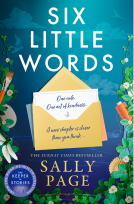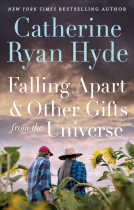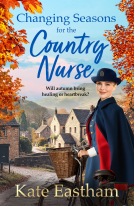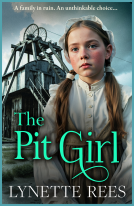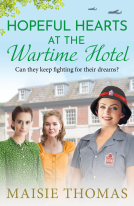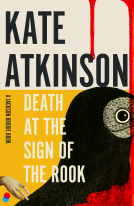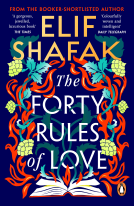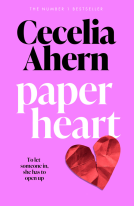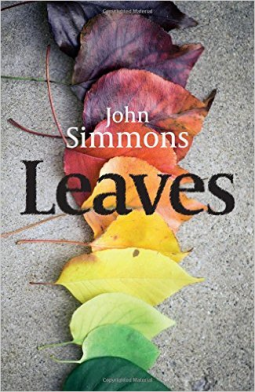
Leaves
by John Simmons
This title was previously available on NetGalley and is now archived.
Send NetGalley books directly to your Kindle or Kindle app
1
To read on a Kindle or Kindle app, please add kindle@netgalley.com as an approved email address to receive files in your Amazon account. Click here for step-by-step instructions.
2
Also find your Kindle email address within your Amazon account, and enter it here.
Pub Date 3 Jan 2016 | Archive Date 29 Feb 2016
Description
A Note From the Publisher
Advance Praise
John Simmons is the best writer you think you haven't read. In fact he is one of the architects of the language of our daily lives. With his novel Leaves the secret is now out. --Caroline McCormick, former Director, PEN International
The phrase a writers writer is overused but in John Simmons case it is spot on: his sentences gleam and compel you to follow them. --John Mitchinson, co-founder QI and Unbound
Available Editions
| EDITION | Paperback |
| ISBN | 9781909273771 |
| PRICE | £8.99 (GBP) |
Links
Featured Reviews
"Memory grows plump in youth and wastes away to skin and bone."
John Simmon's novel Leaves waited forty years to be published. The novel is set in North London in 1970, the year Simmons wrote the first draft. Simmons went on to forge a career teaching writing. Returning to his languishing novel after forty years Simmons rewrote it from the perspective of the narrator looking back to the events and people of Ophelia Street, a cul-de-sac of "pre-Raphaelite fancy" that had become a prison for occupants "straining to burst free from its hold."
The narrator is a London newcomer, a journalist starting his first job. Over the year he lived on Ophelia Street the narrator observed and recorded the people of the street. Now after thirty years passing he tells us the story of Ophelia Street and the events that gave him the story that made his career.
The inhabitants of the street seem ordinary at first glance. A young family, a brother and sister, grown men living with their mothers. A factory at the end of the street is owned by one family and employs others. There is a pub that brings men together and separates families. Children play on the streets. The street empties when summer vacations lure people to the sea shore.
The book opens with the death of a stray dog which brings three people together to check out what had happened and to deal with the body. Over the year, as the leaves change, we learn more about the inner lives of the inhabitants. There is the death of a marriage and of several elderly people, the conception of a child, the murder of small animals and the murder of a child. At the end of the year almost everyone has left Ophelia Street which is to be torn down and replaced with modern dwellings.
I had mixed feelings about the book as I read it. Early on it felt voyeuristic and recalled Rear Window by Alfred Hitchcock. The narrator tells us we are all being watched in the city. I also felt I understood the narrator and have been just as bad! My high school diary is full of observations about the people I knew, even down to my recording everything that happened during one study hour, who dropped a pencil, who passed notes, who set their head down and napped. The narrator justifies this as practicing journalistic observation. I will gladly accept that understanding!
The structure is complicated. The author has written a narrator whose story is told in both in real time (30 years later) and in real time (1970) with dialogue, action, and descriptions of people's inner thoughts and feelings (circa 1970). It raises questions. Is the narrator a voice for the author? Is he a reliable narrator? How much has the narrator reconstructed the events of Ophelia Street based on imagination?
There are mysterious and dark goings on but the reader is left to connect the dots. I actually appreciate that belief in the intelligence of the reader, although some readers will grouse that the mysteries were not 'solved'.
Reviews talk about the beautiful writing and that is what drew me to request the book from NetGalley. Epigrams and quote-worthy sentences abound. "We all have a tendency to romanticise [sic: this is a British novel!] the past, particularly to romanticise our own past." "He suddenly realized how fragile was the glass of this friendship." And, "Ophelia Street was,"..."A place that had seen better and grander times. Like a once-fine ocean liner slumped on a deep sea bed, but breaking up, for better, for worse."
I do wonder about the title, based on the changing seasons, when I would have thought that "Ophelia Street" would have better suited.
I look around at my suburban street and wonder what secrets and horrors, loneliness and isolation, hopes and dreams reside in these houses? Is there a story to be told in every street? I sincerely hope we are quite boring.
I received a free ebook from the publisher through NetGalley in exchange for a fair and unbiased review.
 Kathleen D, Reviewer
Kathleen D, Reviewer
What is strange and unsettling about Leaves is how beautiful Simmons describes everything and yet how ugly some moments are. Each character is gorgeously written and you can smell and feel everything. The writing really is beautiful. Any author that can create this strange set of characters has undeniable talent. Siblings Gerald and Seline's relationship is uncomfortable more than because Seline's world exists inside the walls of their home and no where else. This is the creepy side you would see if you could peer inside the homes anywhere in the world. Robert's bent nature is in your face and is expressed so naturally in his actions that it isn't necessary to point out 'this is a foul character'. The children themselves behave as I would expect them to in life, they are not your typical fictionalized darlings.
"You'll get filthy," said Susie with some distaste. "Leave it alone."
But Elaine was engrossed in her business. She picked up scraps of nondescript articles, dropped them again, moved along the line, as if searching for clues. At last she came to the end and a small wooden box with a polythene bag in it. The bag was not tied, so Elaine opened it.
"Phew!" She staggered backwards, pushing the bag away from her.
"What is it?" Susie asked.
"Come and have a look."
"No, cone on, let's go."
David, though, could not resist. Nervously, with one hand picking at a button on his shirt, he sidled up to the bag. Even from a few feet away the smell was sickening. Elaine stood, one hand pinching her nostrils shut, the other hand holding open the bag for others to see.
"What is it?" asked David.
"It's a cat," said Elaine.
"Is it dead?"
"Course it is. That's why it smells."
"Ugh," David shuddered.
"Baby!"
"I'm not."
"Yes you are."
That is children! Elaine is a little mean herself David the softer of the children. Her eagerness at digging through filth, the sort to push boundaries in ways other well behaved children wouldn't reminded me of how different people really are from the start. The little personalities that we forget are already there and asserting themselves at such a young age.
There are so many different things happening here with all the characters. Horrible acts, painful inner struggles, brutal cruelties- it is uniquely told. It also makes me take a second look at everyone in my neighborhood.
There is beauty in looking back at how we behaved 'back then'. Things change, and yet a lot of things don't. Leaves are still falling in my head. I really really enjoyed this! Had to sit back and just sift through it all before reviewing.
 Educator 288720
Educator 288720
This is a character study of the people who live on Ophelia Street. Some characters are more developed than others. Typical of any chosen street, there are deaths, tragedies, secretive characters, likeable and unlikeable characters. Some questions remain hanging. Although the book kept me engaged, it did not wow me.
Readers who liked this book also liked:
Catherine Ryan Hyde
General Fiction (Adult), Women's Fiction

